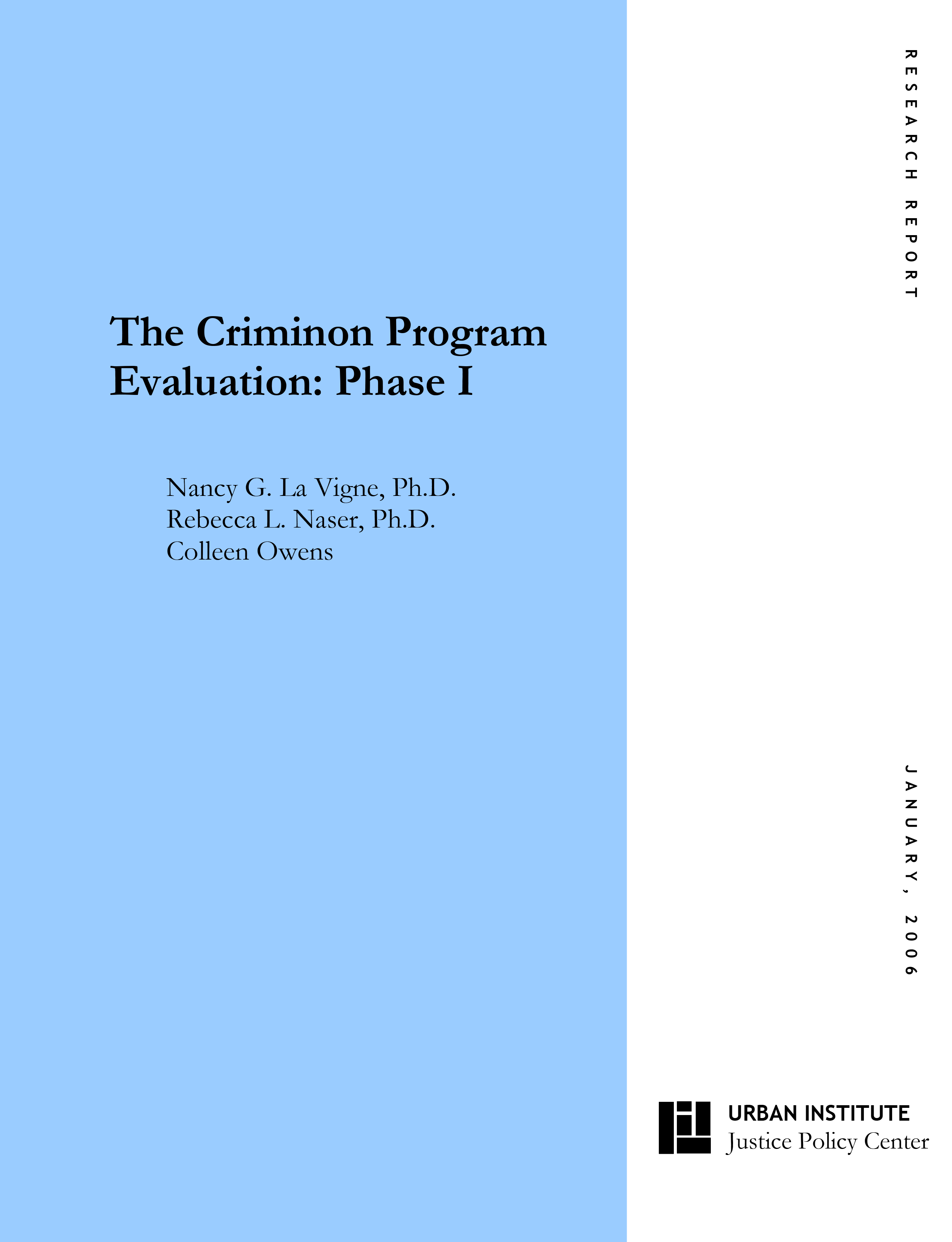Urban Institute Criminon Program Evaluation
Nancy G. La Vigne, Ph.D.
Rebecca L. Naser, Ph.D.
Colleen Owens
JANUARY, 2006

Introduction
In 1972, Criminon, a prison rehabilitation program, was established in New Zealand. Soon thereafter, it was implemented in prisons, juvenile detention centers, court facilities, and community organizations throughout the United States. The Criminon program is based upon techniques developed by L. Ron Hubbard, founder of the Church of Scientology. The content of Criminon, however, is entirely secular, and is offered via two delivery modes: on-site courses and correspondence courses. The program consists of a series of modules that are intended to assist prisoners in understanding the impact of various influences in their environment, the consequences of past choices, and how to make better choices in the future (Criminon International, 2005). To date, Criminon has been delivered in either on-site or correspondence form to over 2,500 prisons in 17 countries worldwide. More than 10,000 prisoners have completed the program and 7,000 are currently enrolled in the program (Criminon International, 2005).
In March 2005, the Association for Better Living and Education (ABLE International), the nonprofit organization that administers Criminon and other social betterment programs, contracted with the Urban Institute to conduct a process and impact evaluation of the onsite version of the Criminon program. The first phase of this evaluation is to:
- Describe the content and delivery of the Criminon curriculum;
- Review the research literature regarding “best practices” in prisoner rehabilitative programming;
- Conduct site visits to existing Criminon programs; and
- Assess the extent to which Criminon is consistent with what prior research suggests are likely to be the most effective approaches to the positive behavioral reform of prisoners.
This report is presented in five parts. We begin with an in-depth overview of the four core Criminon on-site course modules:
- Communications,
- Learning Skills for Life,
- The Way to Happiness, and
- Recognizing and Overcoming Antisocial Behavior.
We describe the content, delivery mode, purpose, and expected outcomes for each course. Following these course descriptions, we outline how instructors are trained as well as the guidelines instructors follow for delivering the course curriculum. The second section of this report is a logic model of the core Criminon curriculum developed from the Criminon course materials and other documents and information about the program provided to us by ABLE International. The logic model provides a description of the theory and logic behind the program design, program curricula, project goals, and expected outcomes. The third and fourth sections provide brief descriptions of complementary course offerings that are sometimes combined with Criminon’s core modules, as well as descriptions based on site observations of four programs offered throughout the country that partner with Criminon.
The fifth section provides a review of the evaluation literature on prisoner rehabilitation programs, focusing specifically on programs that address common deficits found in prisoner populations, such as cognitivebehavioral skills, life skills, and the development of moral values and restoration of selfesteem. This section describes in-prison rehabilitation programs that have been found to have a positive impact on the development of pro-social behaviors and reduced recidivism, categorized across five broad areas: cognitive-behavioral skills, Moral Reconation Therapy (MRT), Reasoning and Rehabilitation (R&R), life skills, and general correctional program evaluations. The report concludes with a description of the elements of Criminon that are consistent with promising rehabilitation strategies identified through prior research. The results of this report will help identify areas of the curriculum that are likely to achieve the goals of transforming prisoners into confident, ethical, and law-abiding members of society.


